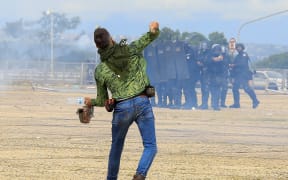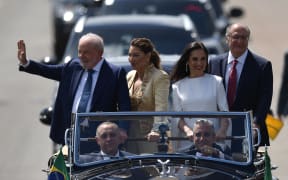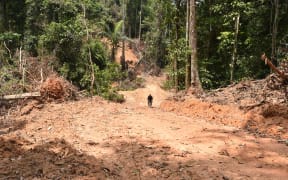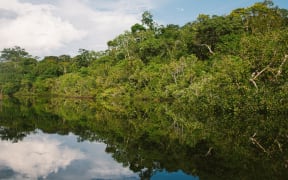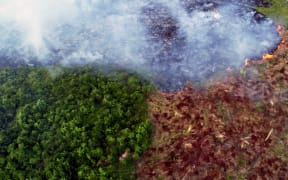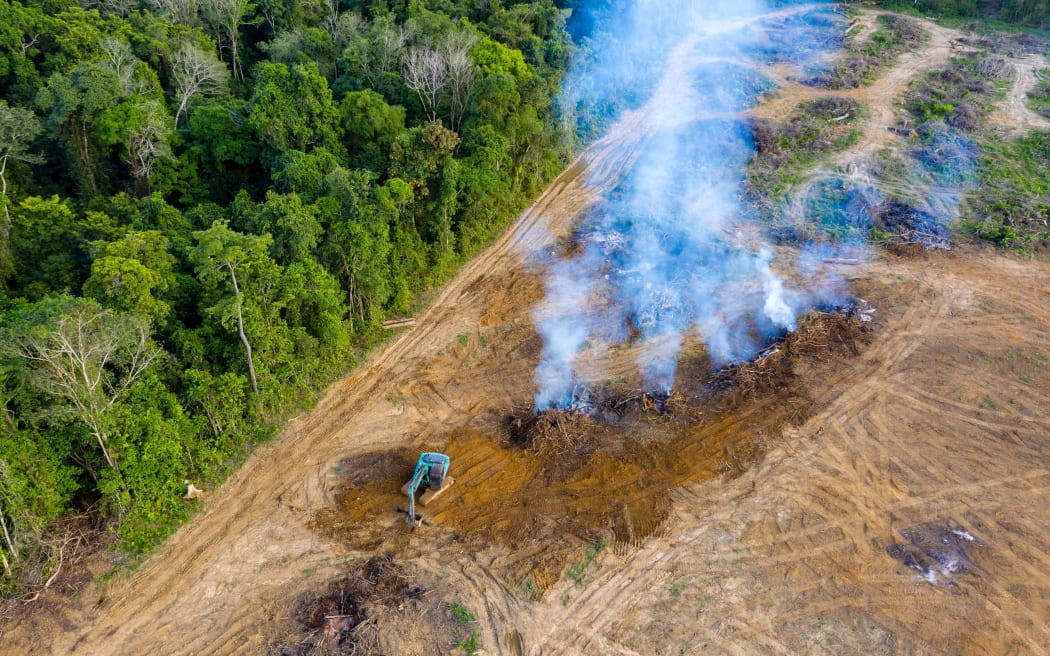
Mining and commercial farming have been banned from six new reserves set up for indigenous groups in Brazil, where the rainforest has been increasingly cleared from areas like the Amazon to create farm land. (File photo). Photo: 123rf/ Richard Whitcombe
Brazil has set up new indigenous reserves where mining and some farming are banned - a milestone after international outcries over deforestation of the Amazon.
Brazilian President Luiz Inácio Lula da Silva decreed six new indigenous reserves where mining was now banned and there would be restrictions on commercial farming.
The lands - including a vast area of Amazon rainforest - cover about 620,000 hectares.
Deforestation in the Amazon soared under the previous president Jair Bolsonaro's reign, prompting international criticism including alarm from climate groups and scientists, and accusations of injustices and violence to indigenous groups in Brazil - who have often been caught in the crosshairs of the contention surrounding deforestation.
Lula, who took office in January, has pledged to reverse policies of his far-right predecessor Jair Bolsonaro, who promoted mining in indigenous lands.
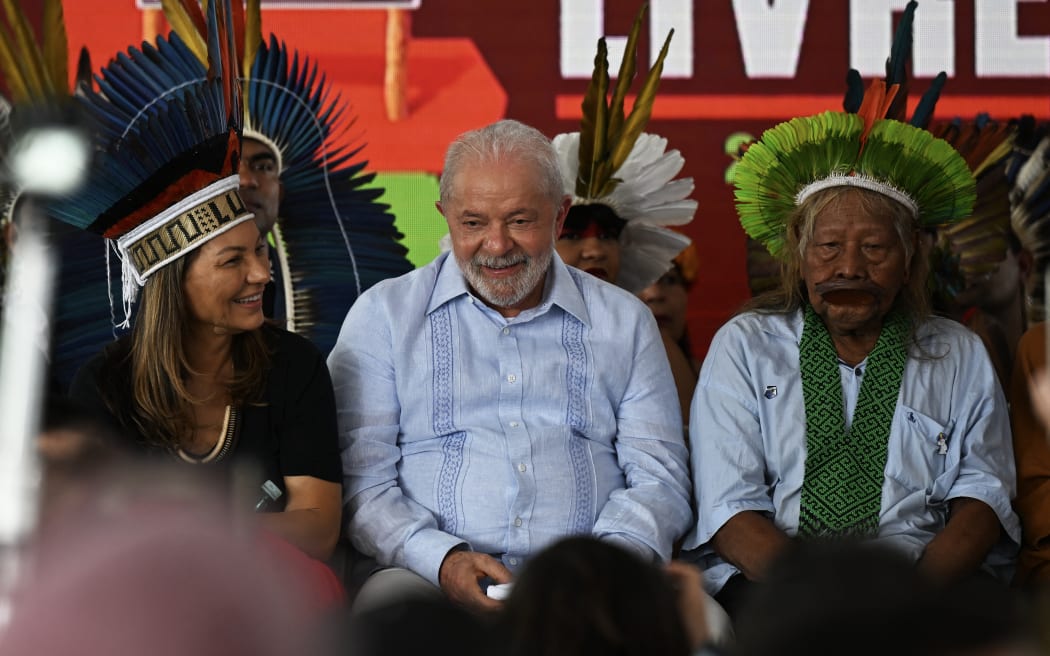
Brazilian President Luiz Inacio Lula da Silva (centre), sits with his wife (left) and indigenous leader of the Kayapo tribe Cacique Raoni Metuktire (right) at the Terra Livre Indigenous summit on Thursday, discussing land rights and indigenous culture. Photo: AFP/ Carl De Souza
Indigenous leaders welcomed the move, but said more areas needed protection.
Lula, who previously served as president in 2003-2010, signed the demarcation decree on Friday - the final day of a gathering of indigenous people from around the country in the capital, Brasília.
"We are going to legalise indigenous lands. It is a process that takes a little while, because it has to go through many hands," the 77-year-old leader told the crowds.
"I don't want any indigenous territory to be left without demarcation during my government. That is the commitment I made to you."
And in a tweet, Lula described the decision as "an important step".
Recent years have seen an alarming rise in deforestation of the Amazon rainforest, a crucial buffer in the global fight against climate change.
The new reserves are in central Brazil, as well as the country's north-east and south.
The presidential decree grants indigenous people exclusive use of natural resources on the reserves. All mining is banned, and there are tighter rules for commercial farming and logging.
While hailing Lula's decision, some indigenous leaders pointed out that his government had vowed to recognise 14 new territories.
During his time in office, Bolsonaro made it his mission to push economic development in the Amazon.
He repeatedly argued that by mining in indigenous territories, Brazil - which relies heavily on imported fertilisers - could build more of its own potassium reserves. That argument was questioned by some experts.
-BBC
